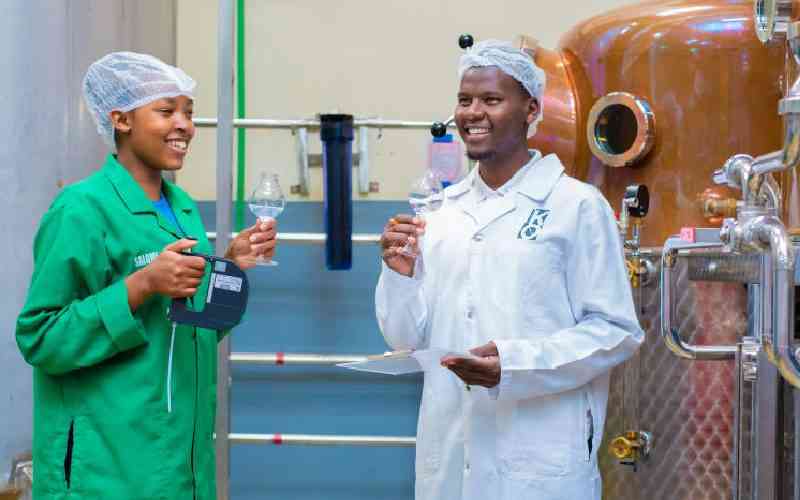×
The Standard e-Paper
Smart Minds Choose Us

About a year ago, Ian Cheruiyot was making Kombucha - fermented tea. His biggest worry then was keeping the alcohol levels below 0.5 per cent.
Now, the 26-year-old is a master gin distiller making stiff drinks with an alcohol by volume (ABV) of 40 per cent after having diluted down from even 80 per cent.